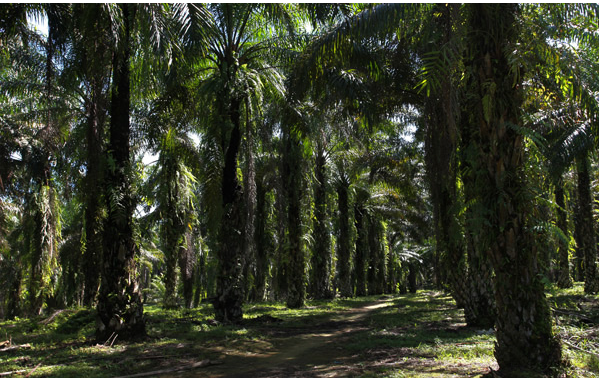Way out for palm oil producers of Indonesia
Industry news / Chat on line / Give me a price / Date: September 30, 2014
Way out for palm oil producers of Indonesia.What's the way out for the palm oil producers of Indonesia?
As domestic palm oil producers struggle with various barriers in export destinations, ranging from repeated trade remedy measures to environmental concerns, the palm oil producers are turning to the great potential of the local market.
Local biofuel producers have taken steps to capitalize on the domestic market. For example, they will this year sell a sizeable amount of palm oil derivative, fatty acid methyl ester (FAME), to domestic users. Doing Group can install and manufacture the palm oil production machinery for customer, the capacity is from 1T/H to 50T/H. you may contact for more info.

Way out for palm oil producers of Indonesia
The local market may absorb up to 3.5 million kiloliters of biofuel, more than triple the figure last year, according to the Indonesian Biofuel Producers Association (Aprobi). Domestic biofuel output may hit 5.6 million kiloliters this year, double from last year.
The new opportunity follows a government policy that requires higher content of the palm methyl ester in the diesel fuel blend.
With a 10 percent biofuel blend requirement, state-owned oil and gas firm PT Pertamina may need up to 5.3 million kiloliters of the ingredient, down from 6.6 million kiloliters estimated earlier. So far, it has secured 2.4 million kiloliters, slightly less than half its overall need.
At present, however, the largest proportion of the products are still exported due to moderate absorption by local users, according to Indonesian Oleochemical Manufacturers Association (Apolin) chairman Togar Sitanggang.
Fatty acids and fatty alcohols are materials to produce surfactants, chemicals used in shampoo, cosmetics, toiletries and detergents. There are still a few local surfactant producers, such as Musim Mas and Germany-based specialty chemical manufacturer Evonik.
“The industry may grow in the next two to five years,” Togar said, citing the need for new investment. He said, however, that might take improvement in the overall business climate in the country and consistent policies, such as export taxes.
As domestic palm oil producers struggle with various barriers in export destinations, ranging from repeated trade remedy measures to environmental concerns, the palm oil producers are turning to the great potential of the local market.
Local biofuel producers have taken steps to capitalize on the domestic market. For example, they will this year sell a sizeable amount of palm oil derivative, fatty acid methyl ester (FAME), to domestic users. Doing Group can install and manufacture the palm oil production machinery for customer, the capacity is from 1T/H to 50T/H. you may contact for more info.

Way out for palm oil producers of Indonesia
The local market may absorb up to 3.5 million kiloliters of biofuel, more than triple the figure last year, according to the Indonesian Biofuel Producers Association (Aprobi). Domestic biofuel output may hit 5.6 million kiloliters this year, double from last year.
The new opportunity follows a government policy that requires higher content of the palm methyl ester in the diesel fuel blend.
With a 10 percent biofuel blend requirement, state-owned oil and gas firm PT Pertamina may need up to 5.3 million kiloliters of the ingredient, down from 6.6 million kiloliters estimated earlier. So far, it has secured 2.4 million kiloliters, slightly less than half its overall need.
At present, however, the largest proportion of the products are still exported due to moderate absorption by local users, according to Indonesian Oleochemical Manufacturers Association (Apolin) chairman Togar Sitanggang.
Fatty acids and fatty alcohols are materials to produce surfactants, chemicals used in shampoo, cosmetics, toiletries and detergents. There are still a few local surfactant producers, such as Musim Mas and Germany-based specialty chemical manufacturer Evonik.
“The industry may grow in the next two to five years,” Togar said, citing the need for new investment. He said, however, that might take improvement in the overall business climate in the country and consistent policies, such as export taxes.
contact us
- QDo you want to buy machine?
- Yes, I want to buy machine.
- No, I want to learn more in advance.
- QWhat oil seeds do you want to process?
- Palm fruit
- Palm kernel/nut
- Peanut/Groundnut
- Soybean/Soya bean
- Sunflower seed
- Cottonseed
- Rapeseed/Canola
- Dried coconut
- Rice bran
- Corn germ
- More than two oilseeds:
- Other:
- QHow many tons palm fruit bunches will you process per day?
- 1-10 tons per day
- 10-30 tons per day
- 30-50 tons per day
- 50-100 tons per day
- QWhat machine do you want?
- Palm oil presser
- Other single machine (thresher, clarification tank, vibrating screen, filter...)
- Palm oil pressing line (from FFB to crude oil)
- Palm oil refining line (to produce refined, bleached, deodorized oil)
- Palm oil bottling / filling line
- QWhat machine do you want?
- Palm oil pressing line (from FFB to crude oil)
- Palm oil refining line (to produce refined, bleached, deodorized oil)
- Palm oil bottling / filling line
- QHow many tons oil seeds will you process per day?
- 1-20 tons per day
- 20-50 tons per day
- 50-100 tons per day
- QWhat machine do you want?
- Oil presser
- Other single machine (cracker, crusher, roaster, filter...)
- Oil pressing line (from seeds to crude oil)
- Oil refining line (to produce refined, bleached, deodorized oil)
- Oil bottling / filling line
- QWhat machine do you want?
- Oil presser
- Oil pressing line (from seeds to crude oil)
- Oil solvent extraction line
- Oil refining line (to produce refined, bleached, deodorized oil)
- Oil bottling / filling line
- QWhat machine do you want?
- Oil pressing line (from seeds to crude oil)
- Oil solvent extraction line
- Oil refining line (to produce refined, bleached, deodorized oil)
- Oil bottling / filling line



